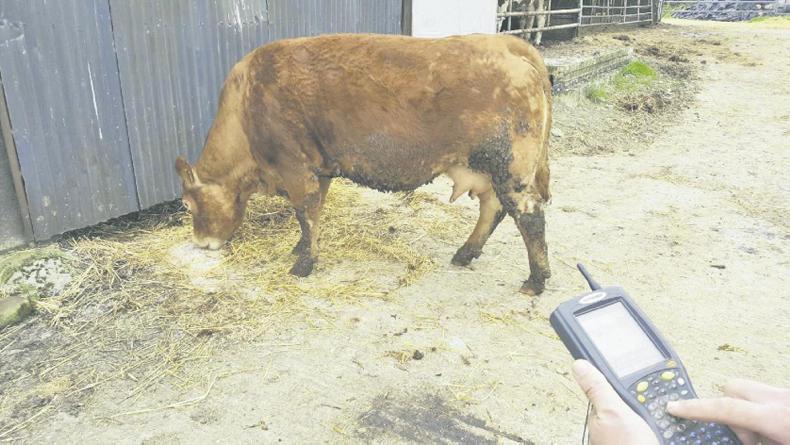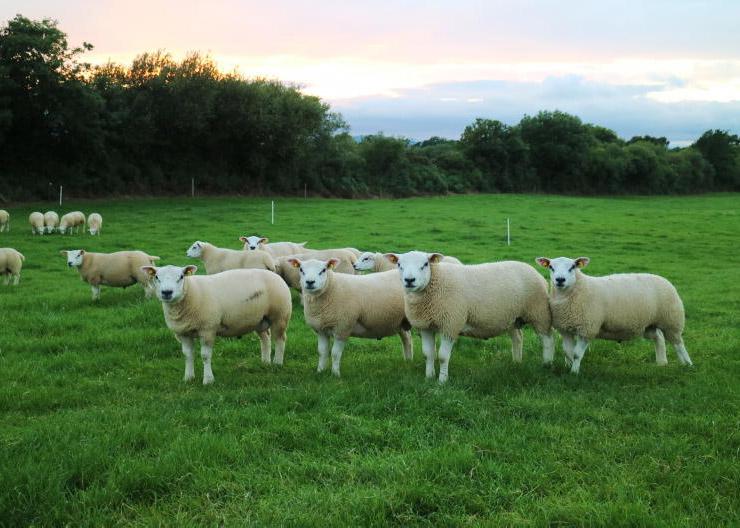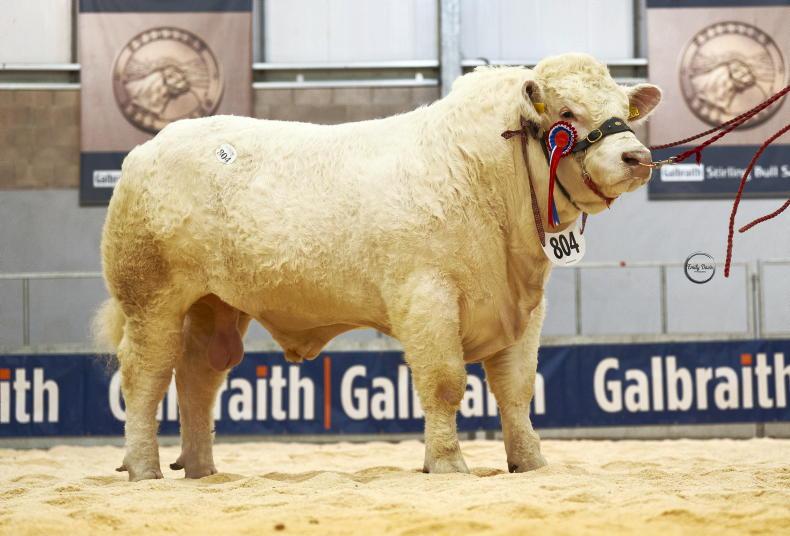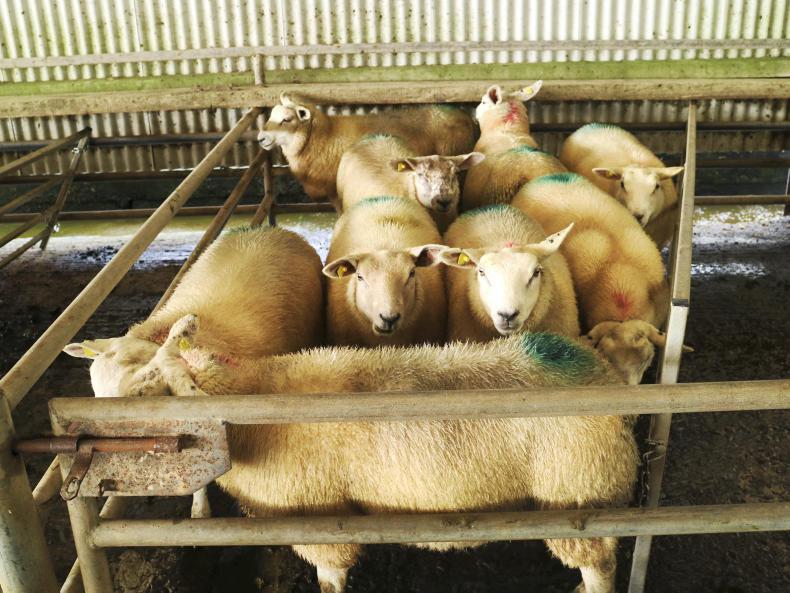The ICBF Whole Herd Performance Recording Programme (WHPR) was set up earlier this year by ICBF with three main goals of rewarding the recording of accurate data in beef pedigree herds:
1 Reward breeders: Give pedigree breeders the real reward of promoting their bulls for sale to commercial suckler farmers.
2 Accurate data: Ensure that the data recording in these herds is completed in an accurate and timely manner.
3 Relevant data: Data that’s recorded must be relevant to the replacement and terminal indexes that ICBF produces on them.
The new WHPR programme has replaced the old way in which pedigree beef herds were performance recorded by ICBF.
What’s involved in a WHPR visit?
An ICBF scorer will visit a participating pedigree herd at least once each year and record data on the whole pedigree herd. Every pedigree animal must be presented.Participating breeders must make their herds available for spot check visits from ICBF, to validify birth dates and young stock performance in particular. These visits are to maximise the integrity of all data recorded in the herd.Breeders are also encouraged to record birthweights and DIY liveweights on their animals. This will add greatly to an animal’s €uro-Star figures. Breeders must also birth notify any very large calves to ICBF when they are born. All pedigree animals must be presented. Different information will be recorded, depending on the animal’s age.Weighing cows
The weighing of pedigree cows is a new development.Feed Efficiency makes up nearly 20% of the replacement index. There is a direct link between the size of an animal and its feed intake. It is important that pedigree cows are weighed so as we are rewarding those cows that are not expensive to keep but breed a great calf. It’s important to note that only cows with a calf suckling are to be weighed. It would not be safe or beneficial to weigh heavily in-calf cows.Spot checks
Spot checks will be carried out on a regular basis. Records will be carefully monitored and ICBF will not allow a breeder to remain in the programme that fails to comply with the various data recording requirements of the programme.
What does it cost?
ICBF will pay for 50% of the cost of weighing the cows in a herd’s first visit. The fee is increasing from €5 to €6 an animal in January 2018.
Progress so far
We are delighted with how the new WHPR programme has started. We have over 550 pedigree breeders signed up from 11 different pedigree breeds already.
In the old system, 7,300 pedigree cattle were scored across 900 herds in a year, but the majority of these animals were scored and weighed on their own or in small groups.
This was an excellent way of pre-inspecting animals for sale but wasn’t adding much to an animal’s €uro-Stars due to the small amount of data involved.
The new WHPR programme is fast approaching 20,000 pedigree cattle lined up for recording already across nearly half the number of herds.
So the new system has already far outstripped the old system in terms of efficiency.
ICBF is able to spend more time in less herds gathering far more valuable data when compared to the old system where only a few hand-picked animals were being recorded but in a far more inefficient manner.
The cost is largely the same but the impact the data will have on the accuracy of the €uro-Stars is far greater.
Read more
Full coverage of the Whole Herd Recording Programme
Five top tips for buying a stock bull
12 steps understanding the beef indexes
The ICBF Whole Herd Performance Recording Programme (WHPR) was set up earlier this year by ICBF with three main goals of rewarding the recording of accurate data in beef pedigree herds:
1 Reward breeders: Give pedigree breeders the real reward of promoting their bulls for sale to commercial suckler farmers.
2 Accurate data: Ensure that the data recording in these herds is completed in an accurate and timely manner.
3 Relevant data: Data that’s recorded must be relevant to the replacement and terminal indexes that ICBF produces on them.
The new WHPR programme has replaced the old way in which pedigree beef herds were performance recorded by ICBF.
What’s involved in a WHPR visit?
An ICBF scorer will visit a participating pedigree herd at least once each year and record data on the whole pedigree herd. Every pedigree animal must be presented.Participating breeders must make their herds available for spot check visits from ICBF, to validify birth dates and young stock performance in particular. These visits are to maximise the integrity of all data recorded in the herd.Breeders are also encouraged to record birthweights and DIY liveweights on their animals. This will add greatly to an animal’s €uro-Star figures. Breeders must also birth notify any very large calves to ICBF when they are born. All pedigree animals must be presented. Different information will be recorded, depending on the animal’s age.Weighing cows
The weighing of pedigree cows is a new development.Feed Efficiency makes up nearly 20% of the replacement index. There is a direct link between the size of an animal and its feed intake. It is important that pedigree cows are weighed so as we are rewarding those cows that are not expensive to keep but breed a great calf. It’s important to note that only cows with a calf suckling are to be weighed. It would not be safe or beneficial to weigh heavily in-calf cows.Spot checks
Spot checks will be carried out on a regular basis. Records will be carefully monitored and ICBF will not allow a breeder to remain in the programme that fails to comply with the various data recording requirements of the programme.
What does it cost?
ICBF will pay for 50% of the cost of weighing the cows in a herd’s first visit. The fee is increasing from €5 to €6 an animal in January 2018.
Progress so far
We are delighted with how the new WHPR programme has started. We have over 550 pedigree breeders signed up from 11 different pedigree breeds already.
In the old system, 7,300 pedigree cattle were scored across 900 herds in a year, but the majority of these animals were scored and weighed on their own or in small groups.
This was an excellent way of pre-inspecting animals for sale but wasn’t adding much to an animal’s €uro-Stars due to the small amount of data involved.
The new WHPR programme is fast approaching 20,000 pedigree cattle lined up for recording already across nearly half the number of herds.
So the new system has already far outstripped the old system in terms of efficiency.
ICBF is able to spend more time in less herds gathering far more valuable data when compared to the old system where only a few hand-picked animals were being recorded but in a far more inefficient manner.
The cost is largely the same but the impact the data will have on the accuracy of the €uro-Stars is far greater.
Read more
Full coverage of the Whole Herd Recording Programme
Five top tips for buying a stock bull
12 steps understanding the beef indexes











SHARING OPTIONS